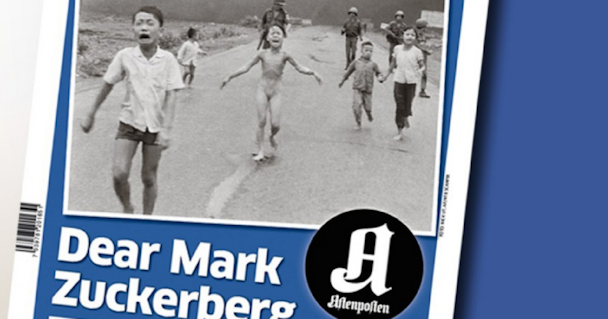Facebook reverses 'napalm girl' photo censorship following media pressure
Facebook has u-turned on a decision to censor the iconic 'napalm girl' photo taken during the Vietnam war amid increasing pressure from the global media.

Facebook reverses 'napalm girl' photo censorship following media pressure.png
Taken by photographer Nick Ut for the Associated Press, the 1972 Pulitzer Prize-winning picture was deemed unsuitable for Facebook due to the fact it depicted an unclothed child.
The company has released a statement noting that the image will no longer by blocked by its moderators, asserting that the historical status of the image "outweighs the value of protecting the community by removal."
Facebook's initial choice to block the historic photo from news feeds provoked a major backlash earlier this week, which was spearheaded by Norway's largest newspaper, Aftenposten. The editor of the daily title penned a scathing open letter addressed to the world's largest social network, calling on its founder and chief executive Mark Zuckerberg to recognize and live up to his role as the "most powerful editor" on the planet.
The controversy first kicked off after the platform deleted a post by Norwegian writer Tom Egeland. His update featured the image, titled 'The Terror of War', which shows several children, including a naked nine-year-old called Kim Phúc fleeing a napalm attack during the Vietnam conflict. Facebook removed the image and suspended Engeland's profile on the site citing community guidelines around nudity.
Aftenposten then used the photo when reporting on the incident, and was subsequently asked to “remove or pixelize” it. "While we recognize that this photo is iconic, it’s difficult to create a distinction between allowing a photograph of a nude child in one instance and not others," Facebook said at the time.
On Friday (9 September) Norwegian prime minster Erna Solberg posted the photo on her public Facebook account, and each time the post was removed from the site. She then censored the image herself to highlight her point.

“Facebook is making a mistake when it censors these types of photos. It contributes to limiting the freedom of expression,” she wrote. "I support a healthy, open and free debate – online and elsewhere. But I say no to this type of censorship."
The girl featured in the image, Phúc, who now lives in Canada piled further pressure on Zuckerberg's team by releasing a statement condemning the censorship. “I’m saddened by those who would focus on the nudity in the historic picture rather than the powerful message it conveys," she said. "I fully support the documentary image taken by Nick Ut as a moment of truth that capture the horror of war and its effects on innocent victims.”
Facebook didn't apologise for removing the image, but said in a statement: "An image of a naked child would normally be presumed to violate our Community Standards, and in some countries might even qualify as child pornography. In this case, we recognize the history and global importance of this image in documenting a particular moment in time.
"Because of its status as an iconic image of historical importance, the value of permitting sharing outweighs the value of protecting the community by removal, so we have decided to reinstate the image on Facebook where we are aware it has been removed."
The social giant said it will also adjust review mechanisms to permit sharing of the image going forward, which could take a few days.
"We are always looking to improve our policies to make sure they both promote free expression and keep our community safe, and we will be engaging with publishers and other members of our global community on these important questions going forward," it finished.
Facebook faced further allegations of censorship earlier this year when former staff came forward to claim it had been expunging right wing news from its Trending Topics section. Zuckerberg denied the reports, but Facebook introduced plans to improve the feature with improved guidelines following the backlash.
Just last month, however, Facebook confirmed that human editors would no longer play a role in picking the topics featured in the section other than for verifying quality, which has led to a few mishaps including a fake story about Fox anchor Megyn Kelly finding its way on to the list.

